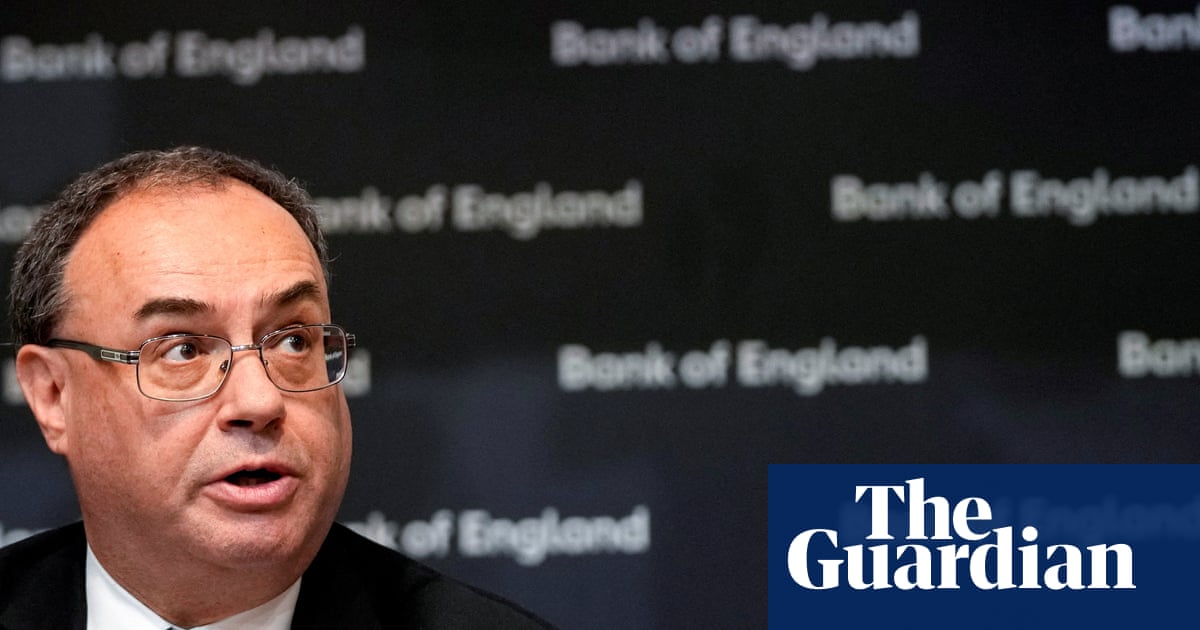
The Bank of England’s chief economist has said Britain’s economy is recovering faster than previously thought from the Covid-19 crisis, while warning that faster growth could lead to higher inflation.
Issuing an upbeat assessment as lockdown controls are gradually relaxed across most of the UK, Andy Haldane said there were signs of a V-shaped economic recovery – whereby growth rapidly snaps back from a steep downturn in activity. However, he warned that a surge in unemployment could quickly nudge the country off course.
Official figures published earlier on Tuesday showed that the UK economy shrank by 2.2% in the first three months of 2020 – the sharpest decline in more than 40 years. The drop was 0.2 percentage points bigger than first estimated.
The first-quarter figures put the country on course for the deepest recession in modern times, with expectations of a steeper collapse in the second quarter. According to the Office for National Statistics, economic output collapsed by more than 20% in April, the first full month of lockdown.
However, Haldane said economic activity had steadily recovered. Speaking during a webinar on Tuesday, he said: “There is a debate about which letter of the alphabet will best describe the path of the economy, with some scepticism about the V-shaped scenario path in the Bank’s May monetary policy report. It is early days, but my reading of the evidence is so far, so V.”
The prospect of a more rapid recovery for the world economy than previously hoped has driven financial markets to one of the strongest quarters on record.
In the UK, the FTSE 100 has rebounded by 9.1% over the quarter – the strongest three-month period since 2010, when the stock market was recovering from the 2008 financial crisis. The index is still about 18% down from the start of the year.
Wall Street has staged a dramatic rebound in the three months to June, as central banks and governments stepped in with emergency financial support to prop up the world economy. The S&P 500 index has jumped by 18% since the start of April, in the strongest quarter since 1998. The index of leading US company shares remains about 5% down this year amid lingering concerns over the virus.
Haldane said the revival in the British economy had been helped by stronger than expected consumer spending, which had improved “sooner and materially faster” than the Bank of England predicted in May. That trend has been helped by spending on DIY and household goods, as well as a sharp uptick in car and home sales, which had plunged during lockdown.
However, the Bank’s chief economist said he was aware of a range of risks to the economic recovery, including a potential surge in unemployment, which has so far been limited to an extent by the government’s furlough scheme.
“Of these risks, the most important to avoid is a repeat of the high and long-duration unemployment rates of the 1980s, especially among young people,” Haldane said.
Government figures released on Tuesday showed that 9.3 million people had been furloughed as part of the coronavirus job retention scheme. Meanwhile, more than 2.5 million self-employed workers are claiming income support.
“Taken together, this means that perhaps as much as half the UK workforce is currently either unemployed or underemployed. This, too, has no historical precedent,” Haldane said.
He was the only member of the interest-rate setting monetary policy committee to vote against extending the central bank’s £100bn stimulus programme earlier this month.
Faced with the prospect of a stronger economic recovery than first anticipated, Haldane sounded the alarm that the economy growing rapidly could fuel higher inflation.
Although it was still unclear which way the balance of risks would fall, he said the package of economic support from the Bank – through lower interest rates and quantitative easing – and from the government could lead to demand for goods and services outstripping supply, pushing up consumer prices.
Driven down by falling petrol prices as demand for oil evaporates amid the global health emergency, inflation is currently at an almost four-year low of 0.5%.
Haldane said inflation could be about one percentage point higher within two years than current Bank forecasts. This could require Threadneedle Street to raise interest rates by about one percentage point to hit its government-set 2% target.
However, he said he was ready to provide further support to the UK economy if needed. “Like the rest of the MPC, I stand ready to adjust monetary policy, at speed, if needed to support the economy.”












